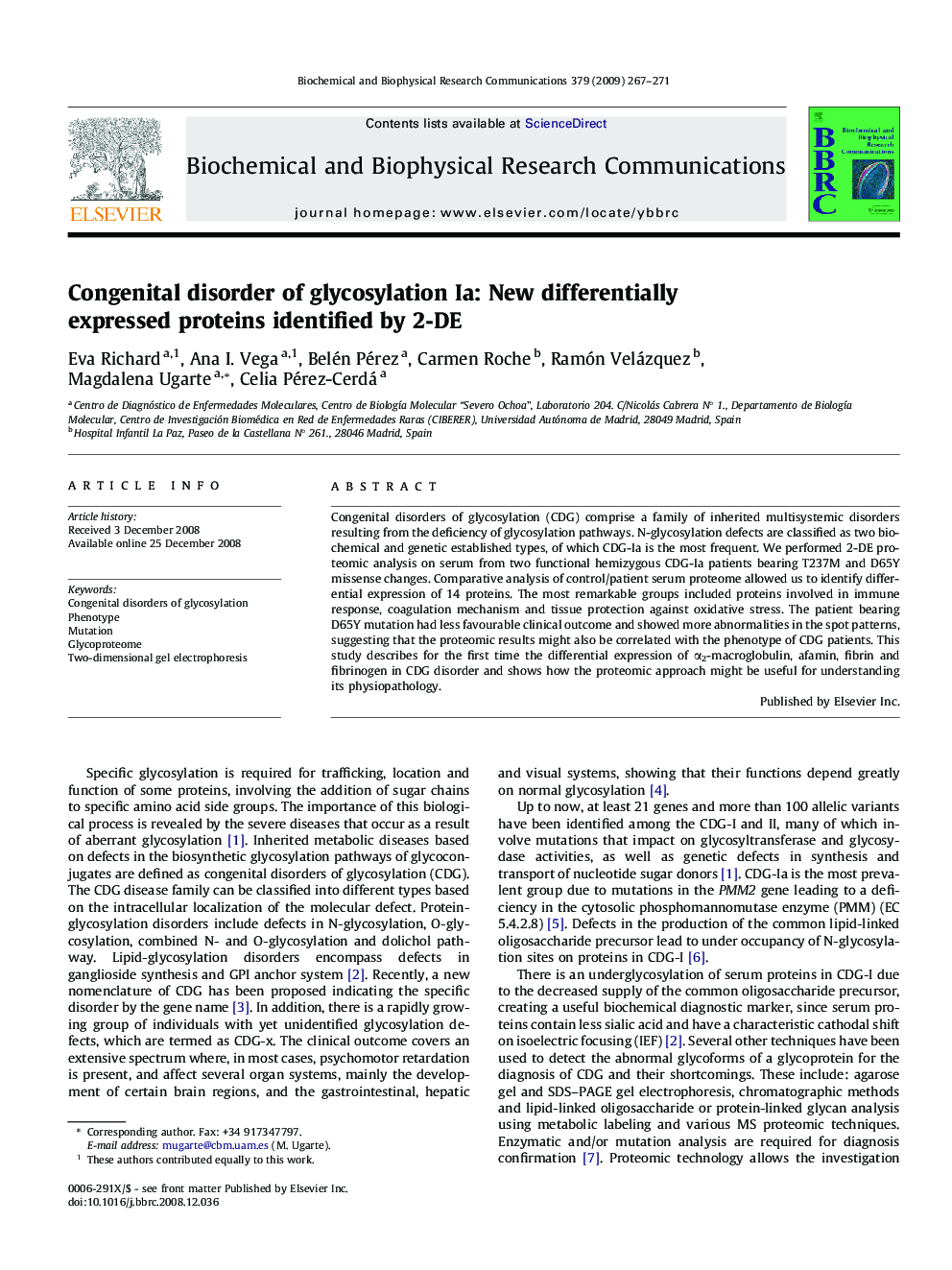| Article ID | Journal | Published Year | Pages | File Type |
|---|---|---|---|---|
| 10766339 | Biochemical and Biophysical Research Communications | 2009 | 5 Pages |
Abstract
Congenital disorders of glycosylation (CDG) comprise a family of inherited multisystemic disorders resulting from the deficiency of glycosylation pathways. N-glycosylation defects are classified as two biochemical and genetic established types, of which CDG-Ia is the most frequent. We performed 2-DE proteomic analysis on serum from two functional hemizygous CDG-Ia patients bearing T237M and D65Y missense changes. Comparative analysis of control/patient serum proteome allowed us to identify differential expression of 14 proteins. The most remarkable groups included proteins involved in immune response, coagulation mechanism and tissue protection against oxidative stress. The patient bearing D65Y mutation had less favourable clinical outcome and showed more abnormalities in the spot patterns, suggesting that the proteomic results might also be correlated with the phenotype of CDG patients. This study describes for the first time the differential expression of α2-macroglobulin, afamin, fibrin and fibrinogen in CDG disorder and shows how the proteomic approach might be useful for understanding its physiopathology.
Keywords
Related Topics
Life Sciences
Biochemistry, Genetics and Molecular Biology
Biochemistry
Authors
Eva Richard, Ana I. Vega, Belén Pérez, Carmen Roche, Ramón Velázquez, Magdalena Ugarte, Celia Pérez-Cerdá,
